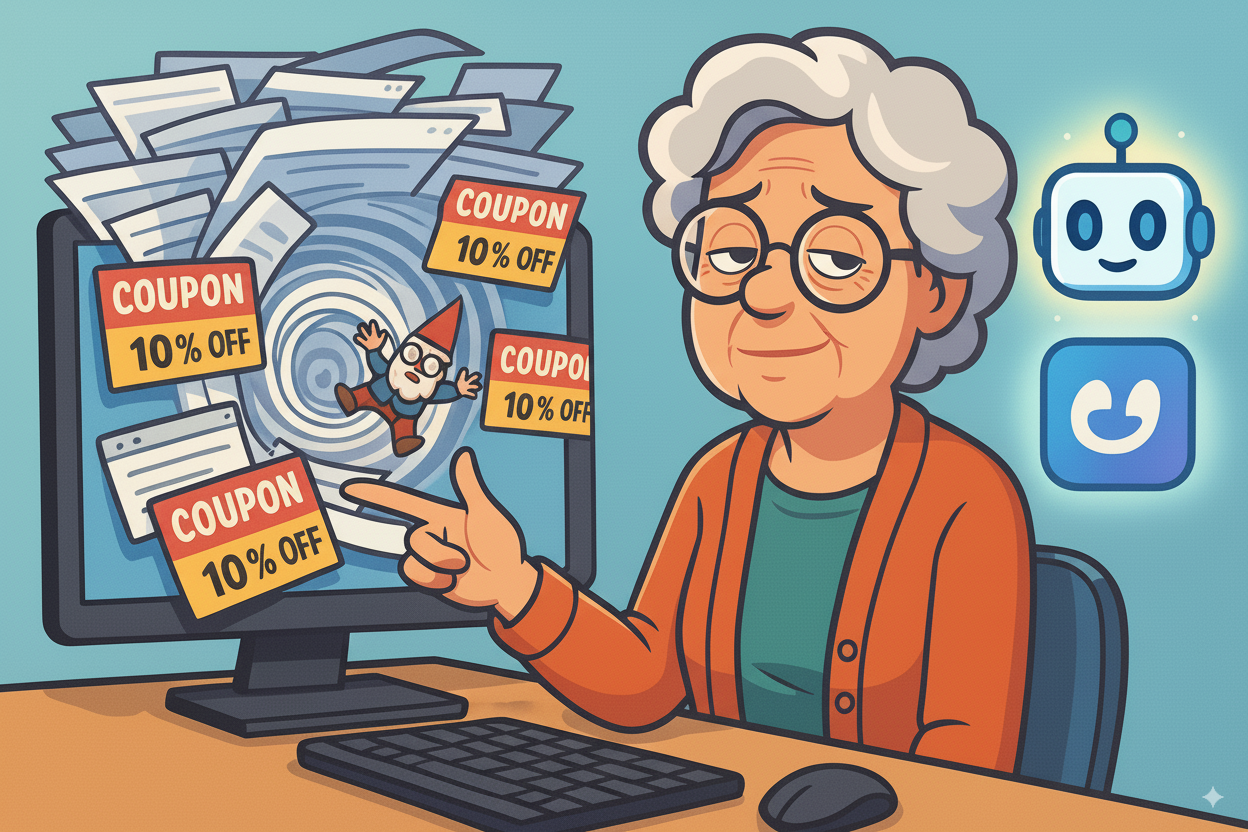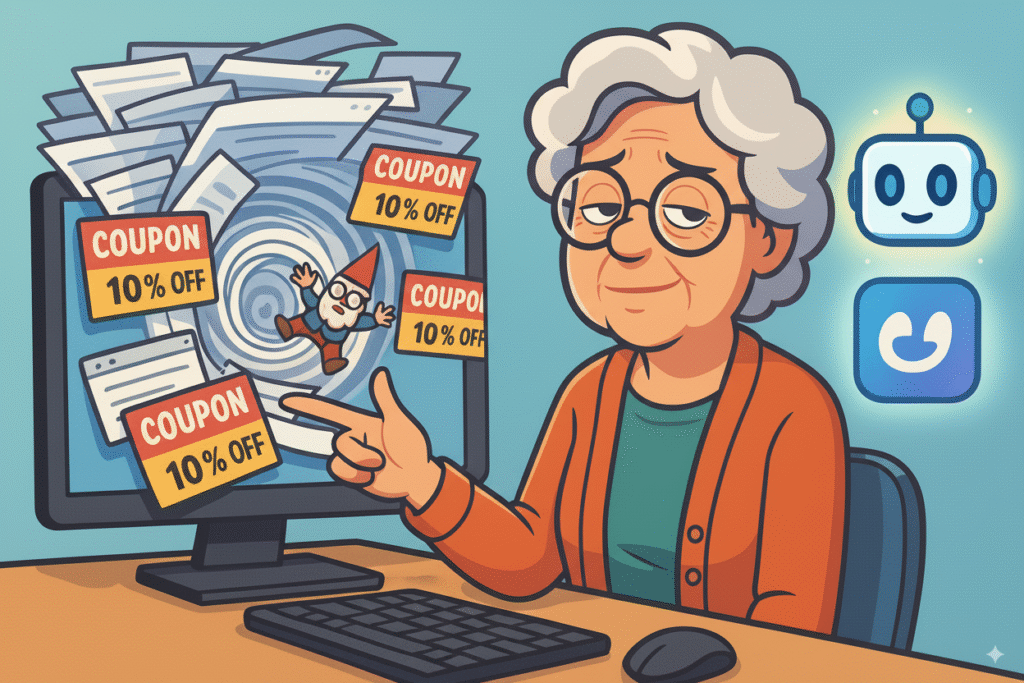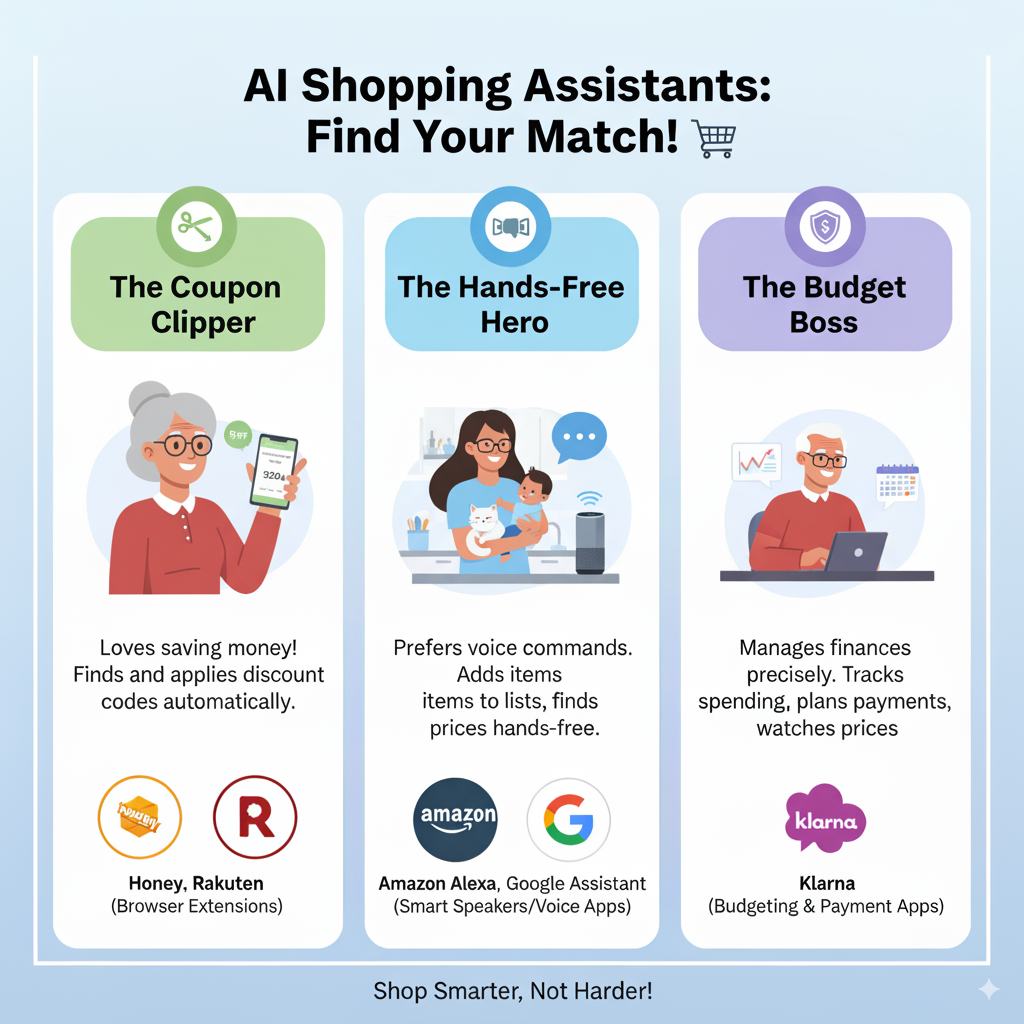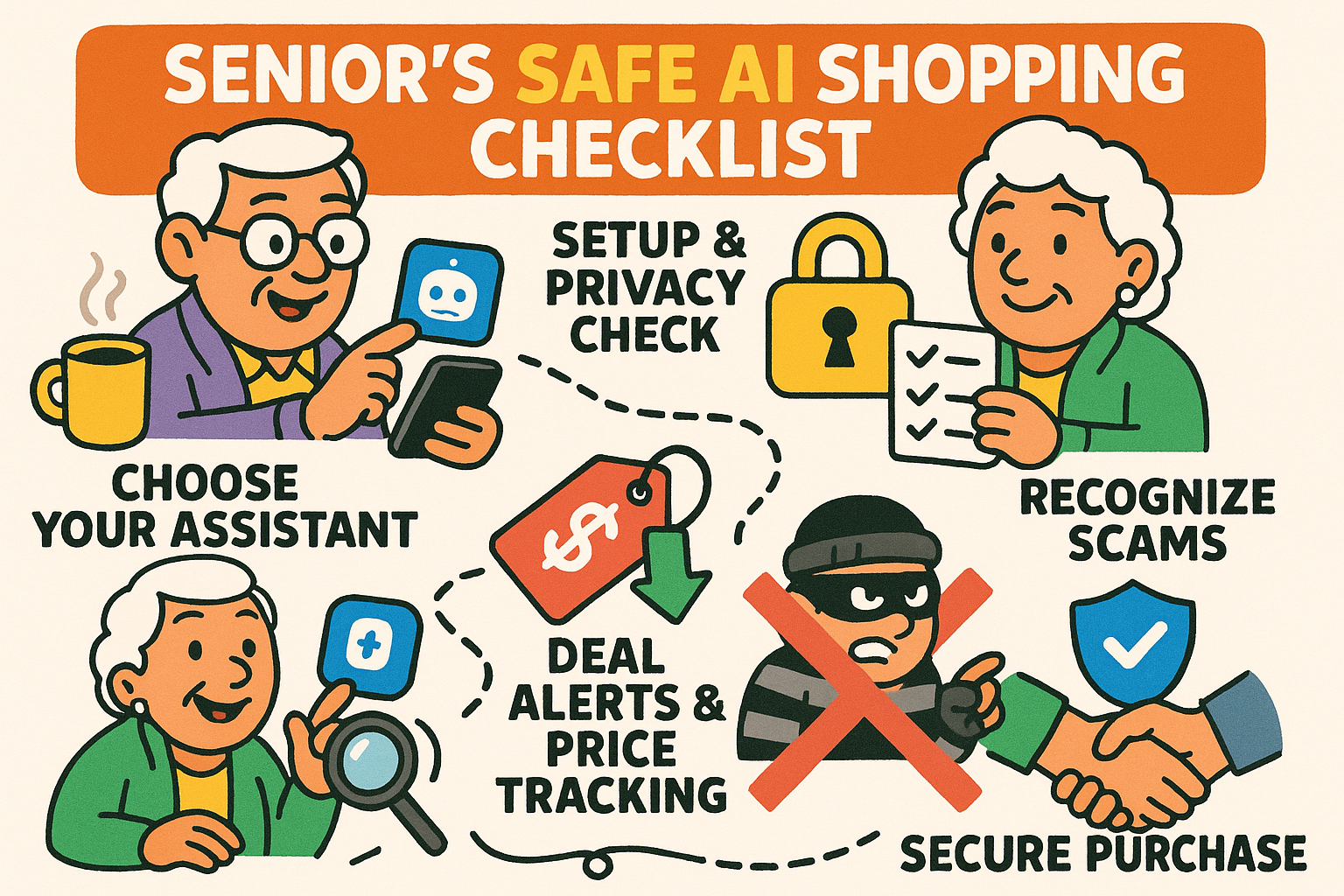
Newsletter Subscribe
Enter your email address below and subscribe to our newsletter

Have you ever felt like online shopping requires the strategic mind of a four-star general and the reflexes of a hummingbird on its third espresso?
You find the perfect garden gnome, but wait—is it cheaper on another site? So you spend the next hour with 17 tabs open, your screen looking like a digital mosaic of gnomes, shipping costs, and forgotten passwords.

Just when you’re ready to buy, a little box pops up: “Enter Coupon Code.”
This sends you on another frantic quest through the internet’s back alleys, searching for a code that isn’t from 2014. By the time you’re done, the gnome is sold out, and you need a nap.
If this sounds familiar, you’re not alone.
But what if you had a savvy, tireless little helper who did all that bargain-hunting for you? That’s the promise of an AI shopping assistant.
Let’s pull back the curtain on these digital sidekicks and find the one that fits you like a comfortable pair of slippers.
Before your eyes glaze over at the term “AI,” let’s demystify it. Think of an AIArtificial Intelligence (AI) is basically when computers get smart—really smart. Imagine if your c... More shopping assistant as a friendly, super-smart personal shopper who lives inside your computer or phone.
Their entire job is to make your shopping easier, safer, and cheaper. They don’t get tired, they don’t need a lunch break, and they love finding a good deal more than anything.
So, how do they work their magic? These assistants use clever technology to automatically scan websites for lower prices, find and test coupon codes, and alert you when an item you want goes on sale.
They’re the digital equivalent of having a friend who whispers, “Psst, you can get that 20% cheaper at the store down the street.”
When you’re looking for one of these helpers, you’ll mainly find two types:
1. Browser Extensions: These are like little helpers that clip onto your internetThe Internet is a vast network of computers and other electronic devices connected globally, allowin... More browser (like Chrome, FirefoxFirefox is a free and open-source web browser developed by Mozilla Corporation. It is known for its ... More, or SafariSafari is a web browser developed by Apple Inc. and is the default browser on Apple devices, includi... More). They work quietly in the background. When you’re shopping on a site, they’ll pop up automatically if they find a better price or a valid coupon. It’s the “set it and forget it” approach.
2. Dedicated Apps: These are separate applications you download"Download" means saving something from the internet onto your device—like your phone, tablet, or c... More to your phone or tabletA tablet is a lightweight, portable device with a touchscreen that you can use to browse the interne... More. You usually start your shopping trip inside the appAn app (short for application) is a program that helps you do specific tasks on your smartphone, tab... More, searching for products or stores. They often come with extra features like creating shopping lists or tracking your budget. This is for the shopper who likes having everything in one organized place.
Choosing between them is less about which is “better” and more about which one suits your style.
Do you want a helper that chimes in when needed, or do you prefer a dedicated space for all your shopping missions?
Not all AI assistants are created equal. Some are masters of couponing, while others are watchdogs for price drops. The key is to match the assistant’s strengths to your personal shopping style. Are you a meticulous planner or a spontaneous bargain hunter?
Here’s a breakdown to help you decide. We’ve created a few “shopping personas” to make it easier to see which features might tickle your fancy.

Using an AI assistant isn’t just about saving money; it’s also about shopping with more confidence. But with any new technology, it’s wise to be a little cautious. Here are a few pro tips to make sure your bargain hunting is both successful and secure.
Navigating the digital world can feel like walking through a maze, but a few simple rules can keep you safe. Before installing any shopping assistant, it’s a great idea to review 12 quick tips on how to stay safe while shopping online.
Here’s how to use your new AI tools safely without a worry:

In simple terms, it’s a computer program designed to be your personal shopping helper. It automatically finds coupon codes, compares prices, and alerts you to sales, saving you time and money.
Yes, the well-known, reputable ones are very safe. They use encryptionEncryption is a way to protect sensitive data by turning it into unreadable code using complex math.... More to protect your data and have clear privacy policies. The key is to stick with popular, highly-reviewed assistants and download them from official sources.
Absolutely! While it varies, the savings from automatically applied coupons, cash-back offers, and price comparisons can add up to hundreds of dollars a year for a regular online shopper.
A browser extension works in the background of your web browser and pops up when you’re on a shopping site. A dedicated app is a program you open on your phone or tablet to start your shopping. Extensions are more automatic, while apps offer more features in one place.
Yes, the majority of the most popular AI shopping assistants are completely free for you to use. They typically make their money by receiving a small commission from the stores when you make a purchase through their service.
Diving into the world of AI shopping assistants doesn’t have to be intimidating. Think of it as hiring a very efficient, very free personal assistant whose only goal is to make your life easier and leave a little more money in your pocket.
Start small. Pick one that sounds like it fits your style—perhaps a simple coupon-finding browser extension—and give it a try. You might just discover that the frantic, 17-tab search for the perfect garden gnome is officially a thing of the past. Happy (and smarter) shopping